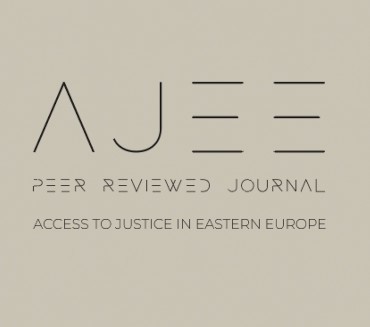1. Introduction. – 2. Determinants of the Electronic Contract Session. – 2.1. The Nature of the Electronic Contract. – 2.2. Offer and Acceptance via Electronic Means. – 3. Peculiarity of Electronic Contract. – 3.1. Forms of Electronic Contract Session. – 3.1.1. The Actual Electronic Contract Session. – 3.1.2. The Virtual Electronic Contracts Session. – 3.2. Legislative and Judicial Guarantees Regarding the Electronic Contract Session. – 3.2.1. At the Legislative Level. – 3.2.1.1. Recognizing the Legal Validity of the Information Contained in Data Messages. – 3.2.1.2. Providing Some Procedures to Verify the Sender and Receiver of Data Messages. – 3.2.2. At the Level of Judicial Application. – 3.2.2.1. Recognizing the Legal Value of Expressing will in Electronic Contracts. – 3.2.2.2. Equality between Electronic Documents and Traditional Documents as Proof. – 4. Conclusion. – 5. Research Results. – 6. Recommendations.
Background:
The role of digital communication means has become significant in our daily lives. These means have become the pulsating heart in achieving instant and rapid communication among people and concluding numerous contracts via the Internet. Therefore, this paper aims to shed light on the concept of electronically concluded contracts, which the Qatari legislator overlooked regulating in Civil Law No. 22 of 2004 and Law by Decree No. 16 of 2010 by issuing the Electronic Transactions and Commerce Law, merely contenting with the provision in Article 4 of this latter law, stating that it is permissible to express offer or acceptance using an electronic means of communication. Regarding the research problem, the term “electronic contract” has become prevalent in many jurisprudential writings, although there is, in fact, no contract concluded entirely electronically; instead, there exists a contract concluded using an electronic means. Consequently, questions have arisen about the nature of the session of this type of contract in which the contracting parties do not convene in one place but synchronise in time. Do we apply the same rules that govern traditional contract sessions, or do we need new legal rules that are compatible with this technological advancement in communication and interaction between contract parties ? This research aims to highlight the problem of not regulating electronic contracts under the Qatari Civil Code. It also aims to propose legal solutions to reorganise these contracts in general, with a focus on the contract session to improve the regulation of all forms of this type of contract. In this regard, the authors attempt to describe the determinants of the electronic contract and explain its privilege.
Methods:
In this research, the analytical approach is adopted by studying the texts of the articles regulating the contract session in the Qatari Civil Code and those regulating the offer and acceptance using an electronic means in Qatari Decree-Law No. 16 of 2010, which promulgates the Electronic Transactions and Commerce Law. By analysing these legal texts, the research aims to highlight the nature of the legal system for electronic contracts in Qatari legislation, ultimately providing legal protection to remote contracting parties and achieving contractual security. This, in turn, upholds the principles of contractual justice sought by legal systems regardless of their historical sources. Moreover, it serves as one of the most important means to attract investment due to its close association with transactional security and respect for legitimate expectations upon which investors rely in forming the visions they seek to achieve.
Results and Conclusions:
In this paper, the authors conclude with some of the most important results, including the lack of specialised studies and Qatari judicial applications addressing the problems arising from these contracts. Moreover, the electronic contract scarcely differs in its substantive provisions from the traditional contract except for the electronic means used in its conclusion. Furthermore, there is a clear discrepancy in the electronic methods of offer and acceptance due to the various methods and aspects used.

